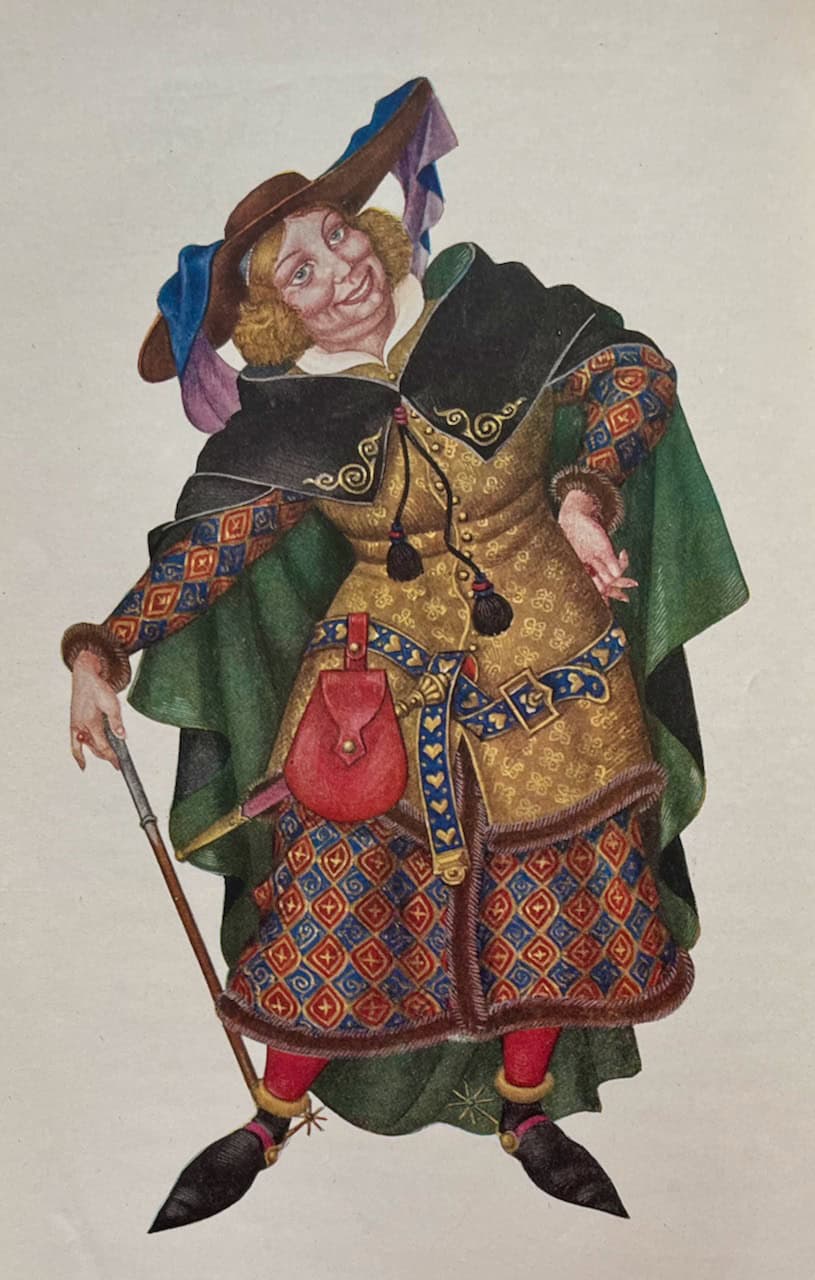

The Wife of Bath
In The Prologue to The Canterbury Tales, Chaucer introduces The Wife of Bath as a bold, confident, and experienced woman. She stands out from the other pilgrims due to her strong personality, worldly experience, and unique views on marriage. Chaucer uses her character to explore issues of female independence and power in a male-dominated society.
The Wife of Bath, whose real name is Alisoun, has been married five times. She says, “Of husbands at church door have I had five” meaning she had five husbands. This makes her highly experienced in the ways of marriage, and she is unapologetic about her multiple marriages. She is not ashamed of her marital history and believes that a woman should have the freedom to marry as many times as she wants. She also plans to marry again if she finds a suitable husband.
Her views on marriage are unconventional for the time. She believes that wives should have control over their husbands, and she often manipulates her husbands to gain what she wants. She says “I have the power during all my life / Over his own good body, and not he.” (power over her husbands all her life). This shows her belief that women should dominate in marriage, which was a radical idea during Chaucer’s time.
Chaucer describes The Wife of Bath as a skilled weaver and a woman of considerable wealth. Her fine clothes and large hat indicate her wealth and social status. She wears “hosen of fyn scarlet reed,” meaning she wears fine scarlet stockings, which were expensive at the time. Her clothes and accessories reflect her confidence and desire to stand out in society.
The Wife of Bath is also described as having a bold and lively personality. Chaucer writes that she is “gat-tothed” (gap-toothed), which in medieval times was considered a sign of sensuality and boldness. She is not shy about her sexuality and openly discusses her experiences with love and relationships. Her gap-toothed smile and confident manner suggest that she is a woman who embraces her desires and enjoys life to the fullest.
In addition to her strong personality, The Wife of Bath is a well-traveled woman. She has been on pilgrimages to places such as Jerusalem, Rome, and other important religious sites. This makes her an experienced traveler and gives her a sense of worldliness. Chaucer uses this to highlight her independence and her desire to experience life beyond the typical roles of women in medieval society.
Despite her boldness, The Wife of Bath is also a complex character. Chaucer portrays her as a woman who seeks control in her relationships, but who may also be seeking love and companionship. Her experience with five marriages has given her power, but it may also reflect a deeper desire for affection and partnership. This complexity makes her one of the most interesting characters in the Prologue.
In conclusion, Chaucer’s portrayal of The Wife of Bath presents her as a strong, independent, and worldly woman who defies traditional gender roles. She is confident, experienced, and unapologetic about her views on marriage and female dominance. Her wealth, bold personality, and travels further emphasize her independence. Through The Wife of Bath, Chaucer explores themes of female power, sexuality, and social norms in a humorous yet insightful way.
Character Sketch of The Squire
Plot Construction in Pride and Prejudice
Introduction to Fiction and Non Fiction
Of Death — Francis Bacon (Text)
Of Truth Critical Analysis by Sir Francis Bacon
Of Truth by Francis Bacon Summary
Speech on Mercy by Portia: Rhetoric, Religion, and Justice in The Merchant of Venice Speech…
Analysis of I Too and The Weary Blues by Langston Hughes: Colonial Experience Langston Hughes,…
Ben Jonson and Comedy of Humours inVolpone (Satire & Greed) This article explores Ben Jonson…
Themes in Twelfth Night William Shakespeare’s Twelfth Night (c. 1601) is one of his most…
Summary of Twelfth Night William Shakespeare’s Twelfth Night, believed to have been written around 1601,…
Shakespearean Comedy and Its Features William Shakespeare, one of the greatest playwrights in English literature,…
This website uses cookies.